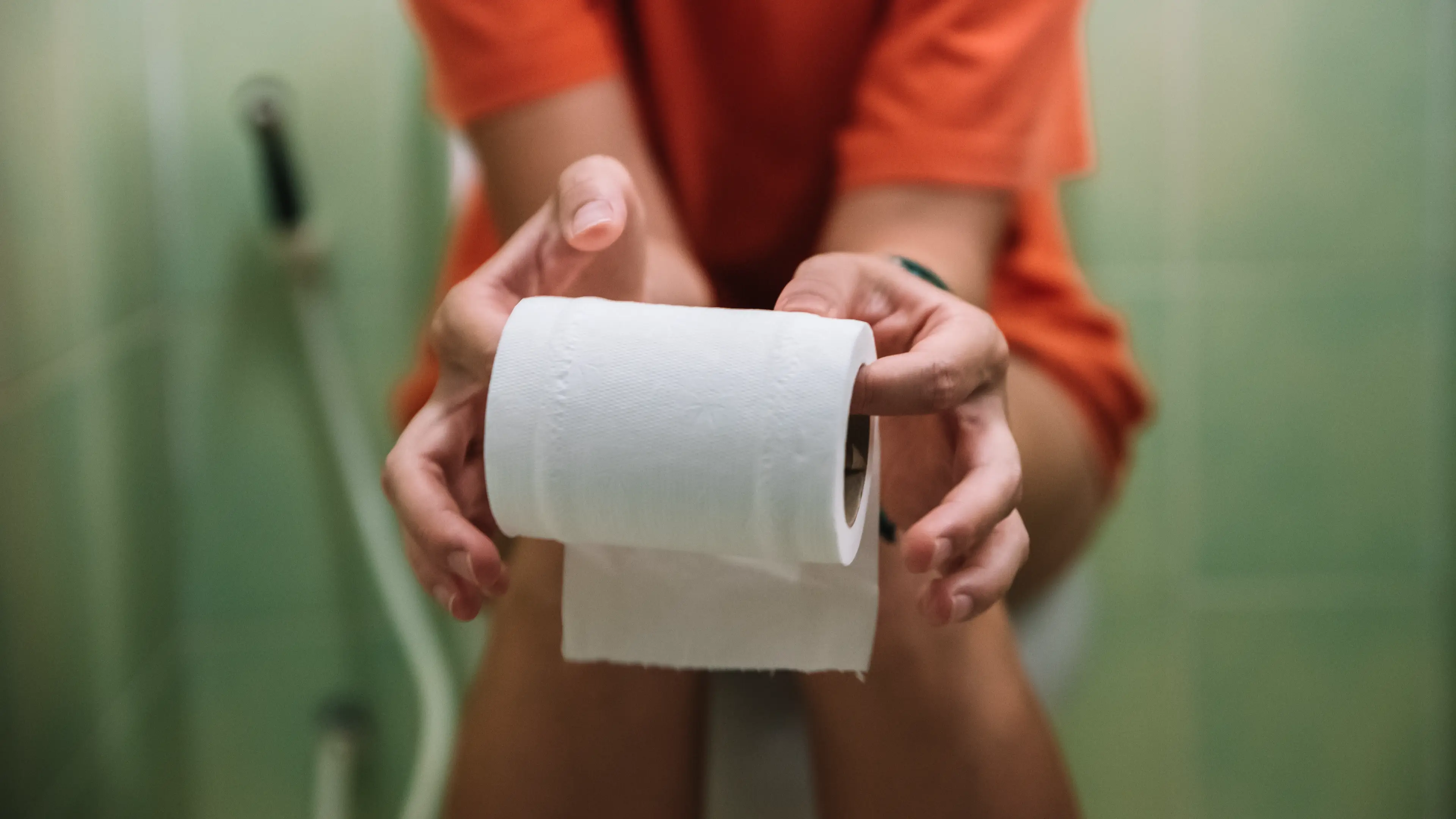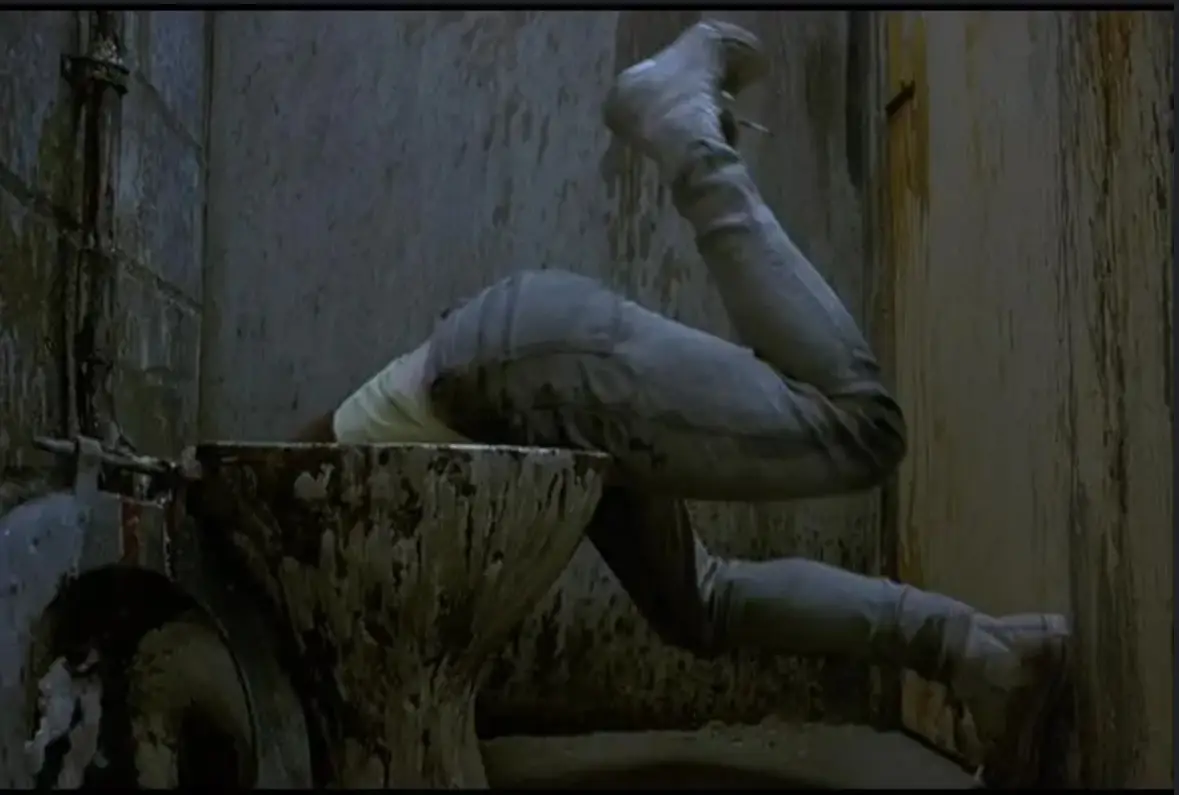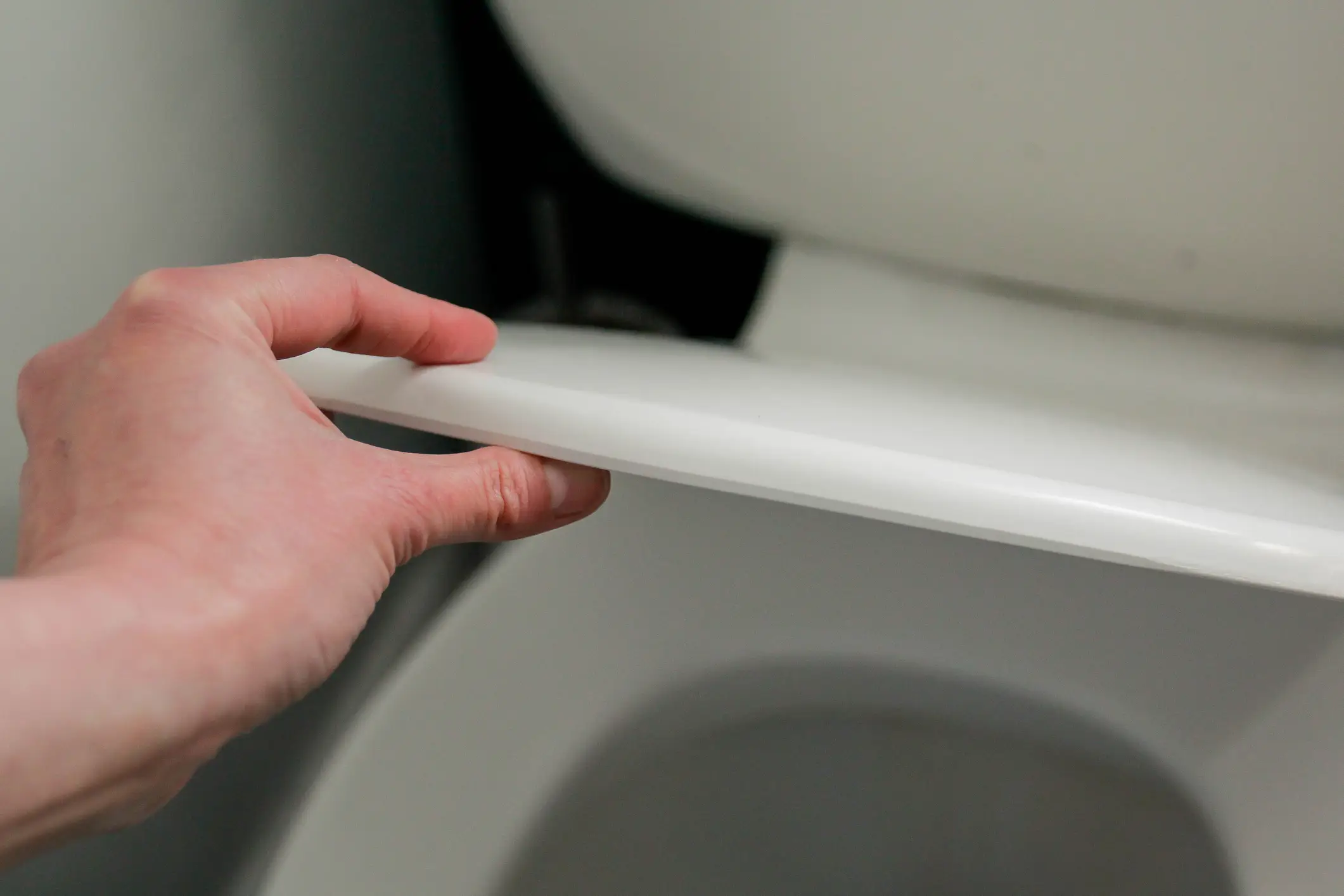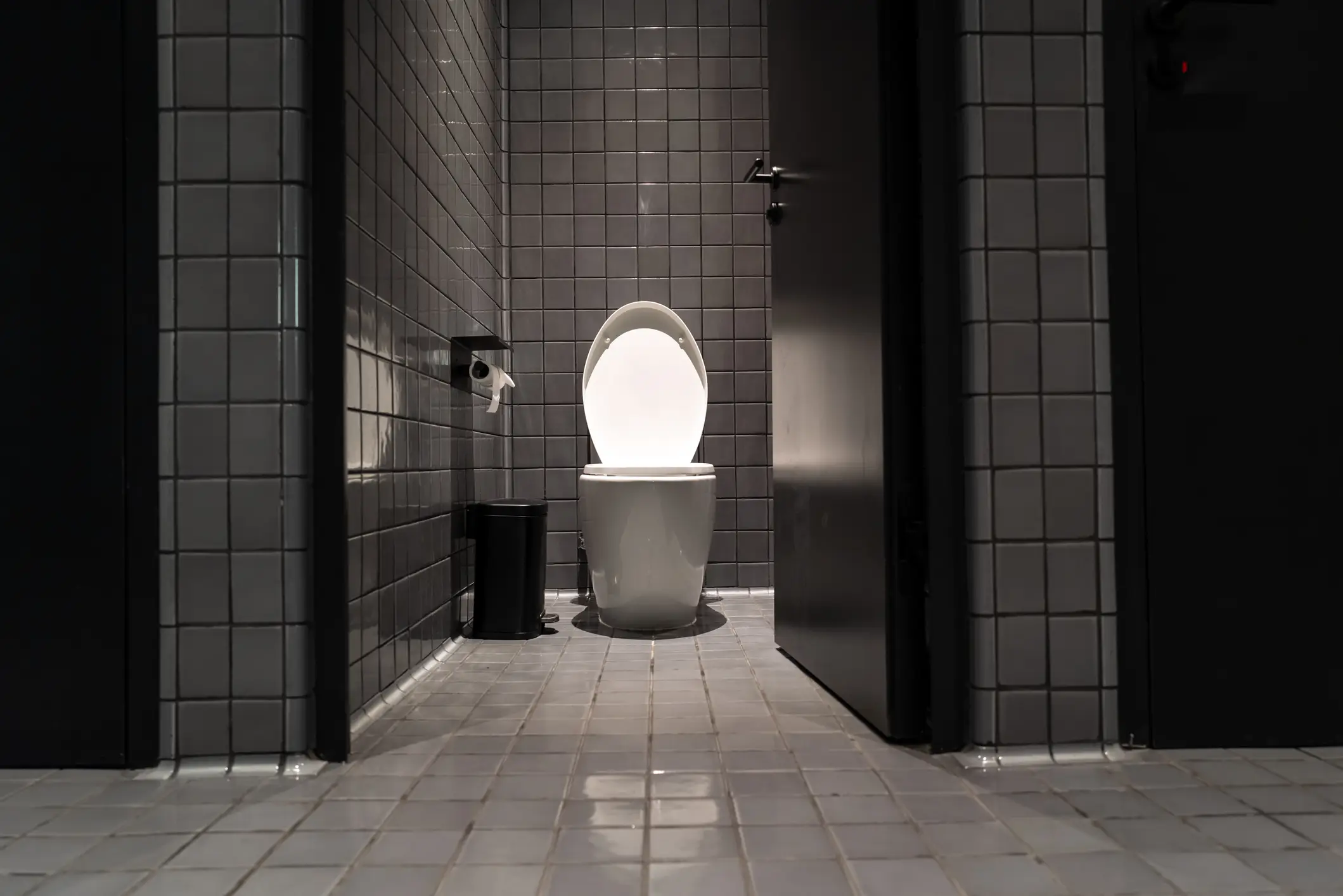
You could be exposing yourself to harmful airborne bacteria if you do this one thing when you use the loo.
Even if the bathroom looks a far sight cleaner than 'the worst toilet in Scotland' in the 1996 movie, Trainspotting, you don't need reminding that the lavatory, whether public or at home, probably isn't a haven of health and hygiene.
In addition, our reliance on tissue paper, as opposed to other methods like a bidet, also means we're a bit behind compared to European and Arab countries when it comes to... well, cleaning our behinds.

Advert
But beyond thoroughly washing our hands, there's another unhealthy behaviour to consider that could be putting us at risk of inhaling harmful bacteria.
Scientists have found the act of flushing the toilet doesn't exactly eliminate the conglomerate of germs lingering in the bowl.
In fact, flushing the loo catapults tiny water droplets into the air, which could contain faecal bacteria like E.coli, Staphylococcus aureus (S. aureus), and Campylobacter.
Breathing in these droplets obviously isn't good for us, and we could develop a range of diseases and health problems, from stomach bugs to a respiratory infection.

Fortunately, we can protect ourselves from disease with one simple act: flushing the toilet with the lid down.
According to researchers at University College Cork, Ireland, flushing with the lid down can actually reduce these airborne particles by as much as 50 percent.
The team studied a shared lavatory over the space of a week to measure the number and size of particles with a bioaerosol sensor.
They found smaller droplets reduced by 30 to 60 percent after flushing with the lid down.
Another study in China monitored two bathrooms in an office building, comparing a squat toilet, where people squat over before using, and another with a bidet.
The scientists used actual human stools to test for the bacteria in the air when the toilets were flushed and compared this to the bacteria present when the toilets were flushed when empty.

The researchers noted squat toilets are similar to that of the seated ones you probably have in your home.
Anyway, they found similar scary results, with the bacteria in the air post-flush to be 16 to 27 percent lower for E.coli and 25 to 43 percent lower for S. aureus when the toilet bowl was empty compared to when it was full.
The study further found good ventilation could help reduce the number of airborne bacteria particles, called bioaerosols.
Wajid Ali, who led the study from China University of Geosciences, said: "Our findings underscore the substantial health risks posed by bioaerosol exposure in public washrooms," reports the Daily Mail.
The scientist added: "Enhancing ventilation systems by optimising exhaust fan efficiency and air exchange rates can effectively reduce bioaerosol concentrations and exposure risks for the public."
Other evidence has found the bacteria lingers around the toilet minutes after flushing, and even after several flushes, but the scientific consensus is that closing the lid before flushing will reduce the amount of bacteria propelled into the air.
So next time nature calls, you know what to do.
Topics: Health, Science, World News